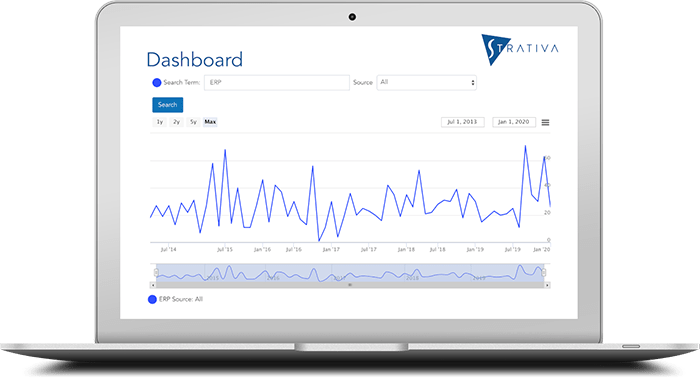
In our software selection consulting, clients often seek our advice on implementation partners. In fact, our experience over several decades tells us that the choice of an implementation team is as important, sometimes more important, than the choice of a new system.
Partners Have Hidden Advantages
In choosing an implementation consulting group, clients often start out thinking that it’s best to choose the vendor’s own professional services group. They think that no one can know the software as well as the vendor’s own personnel. They think that when problems arise, the vendor’s consultants will be in a better position to deal with the software vendor. They also think that there will be less finger-pointing: the consultants blaming the vendor, or the vendor blaming the consultants.
These considerations have merit. But there are other factors to consider, factors that may make an implementation partner, or even an independent consulting firm, a better choice:
- More experience. The most-experienced implementation consultants do not always work for the software provider. In fact, the most senior consultants often find they can make more money or do more interesting work working for a partner.
- Lower cost. Vendors often charge top dollar for their consulting services. Ironically, because they try to keep utilization high, they often maintain a base level of consultants and then have partners subcontract to them to meet spikes in demand or for larger deals. So, when you choose the vendor’s professional services group, many times you are still getting a partner’s consultants. The only difference is you are paying more than if you contracted with the partner directly.
- More objectivity. Partners are more likely to give you the straight scoop on what works, or doesn’t work, with the new system. The vendor’s professional services group, on the other hand, may find it difficult to advise you in a way that calls the vendor’s system capabilities into question.
- Long-term relationship. Partners, especially local or regional firms, are more likely to want to develop a long-term relationship with you, for ongoing support or future enhancements to the system. The vendor’s professional services group is often more interested in getting in, getting out, and moving on to the next deal.
If partners often have these advantages, why don’t vendors simply turn the job over to partners entirely? Some software providers do just that. Microsoft is the most well-known example. When a client implements Microsoft Dynamics ERP or CRM systems, the project is always served by a partner. Sage, Acumatica, and others have adopted a similar model. These vendors may maintain a small core group of consultants, but they are there mainly to support partners, not compete with them.
So, why don’t all vendors take this approach? In some cases, a vendor may not be large enough to support a partner ecosystem. In this case, the vendor needs to own the consulting resources to ensure their client success.
But more often it is because the vendor sees consulting services as another revenue stream. There are two cases where vendors pursue consulting revenue. First, when a software vendor is not making many new deals, they may be tempted to build consulting services as a strategy to offset declining sales. This can be the case with older vendors. Conversely, new vendors trying to establish themselves financially may look to consulting services as a way to beef up their income statements. This is especially true for cloud vendors who must recognize subscription revenue over the life of the contract. Consulting revenue, on the other hand, can be recognized as services are delivered, usually in less than a year.
But at some point, most software providers realize that it is in their best interest to encourage a robust community of implementation partners.
Case Study: NetSuite’s Earlier Approach to Services
NetSuite is the latest enterprise software provider to have a change in its thinking around how it uses implementation partners. Like many providers, NetSuite has had an extensive partner ecosystem. But until recently, NetSuite was one of those vendors that pushed its own professional services groups as an important revenue stream for the reasons just mentioned.
Several years ago, in an analyst briefing, we asked former NetSuite CEO Zach Nelson how NetSuite decides which implementation projects to give to partners and which to keep for itself. His answer was, “you eat what you kill.” In other words, if NetSuite sells the deal, it keeps the implementation services. If the partner finds or sells the deal, the partner gets the services.
This was not the answer that we wanted to hear. The lead may have come to NetSuite directly, with NetSuite viewing the subscription and implementation services both as opportunities. But the best team for the implementation services may be a partner down the street, or one with deep experience in the client’s industry, or one willing to take a more hands-on approach than NetSuite typically provides.
This “eat what you kill” approach meant that before contacting NetSuite with a new deal, we needed to consider who the best implementation team would be. If it was a partner, then it would be important to let the partner register the lead with NetSuite. Or if we approached NetSuite directly, we would need to make it clear that the client reserved the right to look at partners for implementation services. To its credit, NetSuite has always been willing to work with us on this basis.
Oracle Acquisition Changing Things for the Better
But now, with Oracle acquiring NetSuite, things have changed in a more fundamental way. This became clear in an analyst briefing with Jim McGeever, EVP NetSuite Global Business Unit, at NetSuite’s annual user conference last month.
According to McGeever, when NetSuite was a public company of its own, it had to worry about how investors would view its financial results, which meant looking for revenue wherever it could find it. As noted earlier, this made consulting services an important revenue stream. In fact, to accelerate cash flow, NetSuite would attempt to collect half of its consulting fees up front. (We advise clients against this arrangement, even if it means giving up a discount, because it takes away client leverage over the vendor.)
But now, McGeever said, NetSuite’s new owner, Oracle, doesn’t really care about services revenue. As a major tech provider transitioning to the cloud, Oracle’s sole focus with NetSuite is on recurring revenue, i.e. subscription revenue. In other words, Oracle didn’t spend $9.3 billion to acquire a consulting business: it made that investment because it bolsters Oracle’s cloud business, which is strategic to its future.
The focus on subscription revenue is so critical that NetSuite now doesn’t compensate its services team on services revenue, McGeever said. Service group incentives are based on customer satisfaction and utilization (i.e. managing their time).
The benefit to NetSuite’s partners, and to clients, is clear. NetSuite is now in a more secure position to really support its partners. In fact, it is willingly sharing its most recent implementation tools, dubbed SuiteSuccess, with its partners to better ensure effective implementation and customer satisfaction.
Choose the Best System and the Right Implementation Partner
As noted at the beginning of this post, choosing the right implementation partner is as important, sometimes more important, than selecting the right system. Choosing the wrong system will lead to almost certain failure. But choosing the wrong implementation team can kill project success, even if it is with the right system. Clients, therefore, need to apply the same level of due diligence to choosing consulting partners as they do in selecting software vendors.
Do not assume that the vendor’s consulting services are the best choice. Do not let a vendor force you to use its own professional services group. If the vendor will not recommend partners, do your own research. When checking vendor references, be sure to ask who the client used for implementation services. Even if you choose to use the vendor’s professional services group, you may also find it useful to retain a partner, or an experienced independent consultant, to provide a sanity check and a second opinion on the vendor’s recommendations.
With the right use of partners, clients often achieve greater implementation success and in many cases at a lower overall project cost.
Photo credit: author

